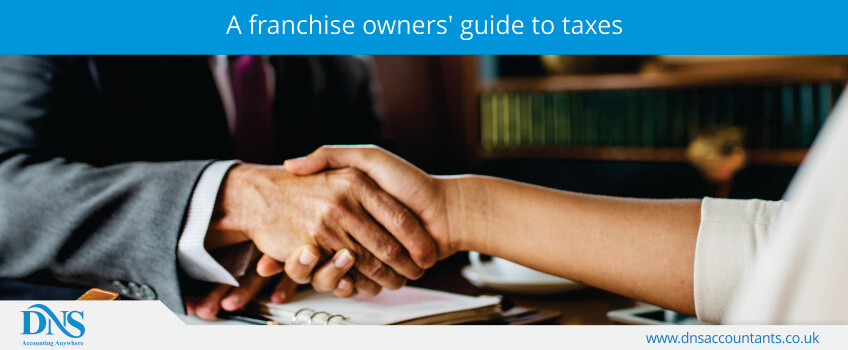If you are looking to start your own business but do not want to start from the scratch, then franchise is one of the best option. Choosing to buy a franchise not only removes a lot of stresses that come with starting a new business, but also gives you an already established brand name to start with. It also gives you the required support and first class training which is otherwise not possible with your new business and though franchise is not a legal structure in itself but as per UK’s law, it can operate within the established legal structures such as a sole trader or a business partnership or a limited company and the most preferred formats for franchise is sole trader and limited company.

Any franchise will involves a franchisor i.e. the owner of the business and a third party i.e. the franchisee, where the franchisor gives the license to the franchisor to operate a business or goods/services suing the former’s name and systems for a definite period of time against a fee which could either be an upfront payment or an ongoing payment fee or a combination of the two and the agreement means that the franchisor gives all the elements of his business to the franchisor for him to succeed including branding, products, designs, supplies, marketing and advertising support etc. In the United Kingdom, there are three main types of franchise i.e. business format franchise, product distribution franchise and manufacturing franchise.
Also Read: Franchise Opportunity
Choosing a Franchise Business
However, before opting for franchising, it is important for you to think on the following points:- Choosing the right type of franchise.
- Do your homework on franchise opportunities.
- Plan and work out your finances because you would need to make initial capital investment and the franchise fees.
- Highlights your strong points in your franchise application because the main qualities franchisors or investors are looking in a franchisee are energy, communication skills, dedication, creativity and not to mention confidence.
- Read and understand the terms of the franchise agreement.
Type of Franchise business
Once you have made up your mind and your application has been accepted, you are all set to start with your franchise. However what you need to remember here is that owning a franchise doesn’t saves you from taxes and as the famous saying goes – the only certainties in life are death and taxed and thus you are liable to pay all taxes which any other businesses are paying such as corporation tax, any taxes related to the franchise operation, personal taxes etc, which however is determined by the legal structure your franchise falls in, such as:
Taxes: A Franchise Business Owner Should be Aware About
When you are investing in any franchise, you are basically paying for the rights in order to operate it for a definite time period and as a franchise owner, you must be aware of the main taxes such as:
Also Read: Low Cost Franchise Opportunities in UK
How Franchise Owner Should Deal With Taxes
Taxes are a fact of life for any and all franchise owners and need to be planned well and before time and to start with, you can have a discussion with your franchisor to understand about the taxes your business needs to pay. The main reason why you need to approach your franchisor as a first step is simply because he is been there in the same segment business much before than you have entered and thus must be more knowledgeable about the industry and the applicable taxes. Apart from talking to your franchisor, you must take below mentioned steps:
In a nutshell, franchising is quite an appealing and lucrative business structure; and offers numerous advantages to a franchisor. One of the most attractive aspects of franchise is low risk factor mainly because the business has already been established and it is not a new one.
Also, you don’t need to work on the branding of your business because people or your target audience is already aware of what your business or franchise is all about and in case your franchisor is known nationwide, then his reach can do wonders for your own franchise because it may run national advertising campaigns on various platforms such as television, social media etc and all you have to do is to plug into its advertising campaign.
However, like any other thing out there in the world, owning a franchise has its own share of demerits. One of the main downside of franchising is that the franchisor may dictate how the franchise should be operated and if that’s the case then the entire idea of having your own business and not working under someone goes down the drain.
Any questions? Schedule a call with one of our experts.








